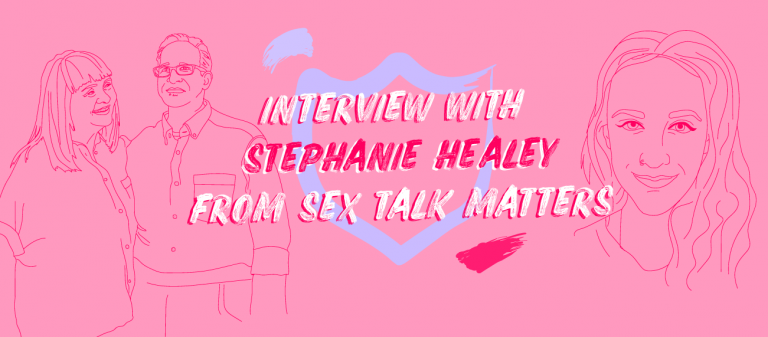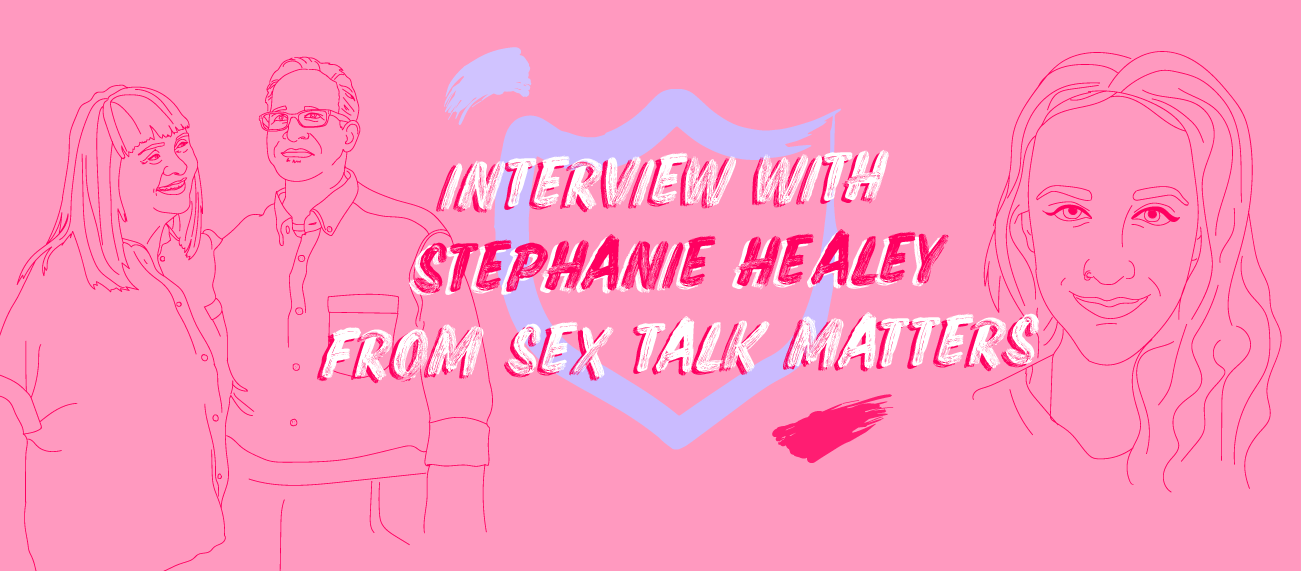How did your parents react when you asked them how babies are made? My mum mumbled something about men ‘wearing a glove’ and didn’t talk about it for another six years.
We know it can be awkward to talk about sex with anyone, let alone your children, but it’s important to have these conversations so we can promote healthy attitudes towards everything from consent to pornography.
That’s why therapist and sex educator Stephanie Healey has created ‘Sex Talk Matter’s – an informal workshop for parents to help them get comfortable talking about sex.
We asked Stephanie a few questions about sex education for parents, why pleasure should be at the top of the agenda and how emergency contraception is still stigmatised in society.
Tell us about Sex Talk Matters
Sex Talk Matters is a Bristol-based initiative which is for any parents, but typically those with children aged nine+. The first workshop will run in November 2019.
We’ve created a workshop which goes off the back of the idea that parents don’t get told much when it comes to sex education. I think parents are feeling quite out of their depth, especially when it comes to what their teenagers are actually seeing and what they’ve already learned about sex before they’ve been taught about it properly.
The workshop is going to be about how to have these conversations. We live in such a hyper-sexualised society yet we can’t talk about sex to save our lives.
We’ve hired a really informal little space and we’ve capped it at 20 people. There’s going to be a little bit of chatting at the beginning and then splitting up into groups.
We don’t make it personal. We don’t expect people to be talking about their stories or what’s going on with their children. I’m just going to help them talk about it openly, which is getting used to asking open questions, not being judgemental, basic counselling skills and things like that. We’re going to talk a lot about social media and pornography.
I think it will translate not only from sex and relationships but onto other things which might be difficult to breach, like drugs, alcohol and friendships. I’m hoping it will translate into different aspects of raising difficult teenagers.
Is Sex Education More Than A Biology Lesson?
In our society, sex education is just a random lesson that happens at some point at school and is not talked about again.
I really want to drive a new narrative about how we pick up sexual messages from everywhere and nowadays young people are getting it from lots of different places.
They’ve already had quite an onslaught of sexual messages by Year nine and we’re having to counteract that.
The idea is that we get in sooner, so when teenagers are subjected to stuff that’s on the internet, they’ve already got a support network where people are driving the idea that sex is meant to be pleasurable and it’s meant to be consensual.
Contraception and STIs are important, but there are so many other aspects around consent, respect and intimacy.
Why Should Sexual Pleasure Be The Baseline Of Sex Education?
We’re coming at it from a pleasure aspect because that’s what the majority of people have sex for. I’ve talked to teachers about sexual pleasure and been like: ‘why don’t you just tell them about their anatomy and erogenous zones?’
I know teachers think it’s inappropriate because they’re teenagers so there’s also the aspect of them being children in the eyes of the law and they don’t want to say the wrong things. They don’t want to offend anybody.
I totally understand that, but it’s almost like they think ‘if we just avoid it’ll go away’, but all it does is drive it a little bit further underground.
It is awkward, I totally see it as being awkward, but you can be brave and there are ways of talking around it. We’re not talking about teaching teenagers about kinks, fetishes and positions, but they deserve fair information.
What Was Your Sex Education Like?
I was in year eight in the early 2000s and our school nurse came in at the beginning of a lesson and showed us a contraceptive cap, and said ‘you need one of these if you’re going to have sex’ and that was it.
She didn’t tell us where it went. I didn’t really understand where it was supposed to go. I didn’t know what it was meant to do or why I needed one.
They didn’t even talk about other types of contraception or STIs. I only really became aware of that maybe when I went to uni when I was 18. There were some projects and we’d get drop-ins to do with contraception.
I was quite a late starter, so I didn’t start dating or seeing any boys until I was like 17 or 18, but I was hugely underprepared.
I essentially spent a huge block of my time being very disappointed and just kind of floundering my way through it and not really knowing what I was doing. A lot of my friends and I ended up having quite difficult experiences because no one was blunt with us. I don’t want that to happen to teenagers anymore.
How Can We Close The Orgasm Gap?
What annoys me is this idea that the female orgasm is really mysterious. It’s not mysterious. It’s right there!
I think that trope and rhetoric is really unhelpful and really heteronormative and patriarchal. We need to avoid that, we need to be talking about sex as a pleasurable baseline for all parties involved.
I’ve asked teenager boys: ‘have you ever talked to your girlfriend about pleasure and if it feels good for her’ and it’s the first time anyone has talked to them about it.
Talking about it as the baseline in sex education as early as possible will really help start to bridge that gap, because everyone whose having sex deserves the pleasure in it, but not at the expense of someone else.
Did You Learn About The Morning After Pill At School?
I learned about it through a friend because she had had to go and get it. I was in upper sixth, so I was eighteen. She went to go and get it, but she got it too late and it resulted in an unplanned pregnancy.
There was nothing in my school about it, nothing in my education about it. I might’ve heard it before, but I didn’t really understand how it works or when you should take it. She was the first person I knew who took it. And that was it. I think the first time I had it was when I was about 24.
Do You Think There Is A Stigma Around Emergency Contraception?
I think there is, especially for young girls. They might have been doing everything correctly, and then an accident happened. Contraception fails and that’s okay. That’s why the morning-after pill was created. These girls are responsible enough to go and get it. That should be really championed and praised.
I’m very shame-free and sex-positive, but I’ve had pharmacists talk down to me and be like ‘you know you shouldn’t be doing that’ and I’m like ‘ I know that but this is where I’m at’.
Of course it shouldn’t be used as a baseline contraceptive, it’s not built for that, but it’s there if your contraception either failed or you didn’t use anything. That’s it. There doesn’t need to be the shame and stigma attached to it.
If you’re tired of the shame and stigma which is still attached to emergency contraception, share your story below and help us change the narrative.







